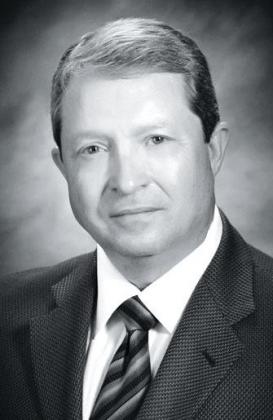
Steve Gardes
State Representative Rick Edmonds recent article stated that there has been a great deal of misleading reports surrounding the state’s Medicaid Expansion program and Medicaid Fraud, and that Louisiana taxpayers deserve the facts since “we have only scratched the surface.” That is very alarming when you consider that the Louisiana Legislative Auditor has issued three audit reports in 2018 identifying large scale fraud (well in excess of $100 million per year) taking place in our Medicaid program being administered by Louisiana Department of Health (“LDH”) — yet we have only scratched the surface. WOW !
However, Dr. Rebekah Gee, LDH Secretary of Health, just came out and assured us that “Medicaid Expansion comes at no additional cost to taxpayers because it is paid for entirely with federal funding and fees paid by Medicaid insurance companies and hospitals”. That sounds great, but unfortunately there is no Medicaid Fairy God Mother who lives in Washington; someone is paying the $2.5 billion plus tab for Louisiana’s 480,000 Medicaid Expansion recipients — and we all know it is taxpayers who pay both federal and state taxes. Perhaps we should analyze her comments further.
— Medicaid Expansion comes at No Additional Cost to Taxpayers because it is paid for mostly with federal funding- Medicaid Expansion costs are paid 90 percent by the Federal governments Medicaid Program (starting in 2020), and the 10 percent balance is to be paid for by the State. The federal 90 percent is paid for by federal taxpayers. Isn’t it misleading for Dr. Gee to imply that Louisiana taxpayers are not paying some of the “federal funding”? Furthermore, when Louisiana added 480,000 residents to its Medicaid rolls it absolutely resulted in “additional cost” that federal taxpayers have to pay. It is misleading to imply that Louisiana taxpayers are not paying some of this increased cost.
— Medicaid Expansion is paid for in part by Hospital Fees — The State has leveled “Provider Taxes” (i.e. fees) on the Hospitals and Nursing Homes to help fund the states 10 percent portion of the Medicaid Expansion costs. So if you stop right here, it does appear that the Hospitals, not Louisiana taxpayers, are paying for a portion of Medicaid Expansion. However, it would be very misleading if we stopped right here — we must ask ourselves, why would Hospitals be willing to pay this “Provider tax”?
— Medicaid Provider Tax ‘SCAM’ with Hospitals — Many Governors decided to expand Medicaid in their states because of the Medicaid Provider Tax — which experts are now calling a ‘SCAM’. By way of example, the ‘Scam’ works something like this: a state assesses a hospital a $1 million Medicaid Provider Tax — then, by “sheer coincidence”, the State also gives the hospital a $1.1 million increase in its Medicaid Supplemental Payments — and then the federal government reimburses the State 60 percent of its Medicaid Supplemental Payments, or $660,000, under Medicaid’s matching funds program. When the smoke clears, the State has made $560,000; the hospital has made $100,000; and the federal government, i.e. taxpayers, has just lost another $660,000. For further information on this subject, read: (1) Why Tax Hospitals? It’s a Medicaid ‘Shell Game’, by Red Jahncke (The Wall Street Journal, 12-30-17), and (2) Biden Was Right: Medicaid Provider Taxes a ‘Scam’ That Should Be Scrapped, by Brian Blasé (Forbes, 2-16-16).
The definition of “Misleading” is “to lead into error of conduct, thought, or judgement.” Is it possible that Governor Edwards and many other Governors have led their states into errors of unsustainable income redistribution plans that our political leaders in Washington have designed? If so, State Rep. Edmonds is correct; we have just scratched the surface — and which brings us to President Trump, who pledged to drain the swamp of fraud and waste. What are the chances he will end this ‘Scam’ before the 2020 election?
Steve Gardes is a certified public accountant (CPA) and certified valuation analyst (CVA) with over 40 years of public accounting experience.
